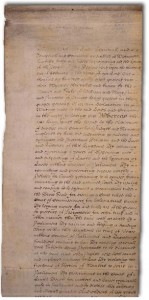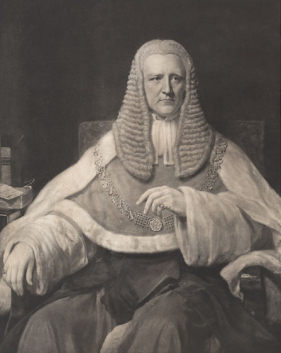By ANN LYON
In recent days there has been heavy criticism of the three justices who heard the judicial review in R (on the application of Miller) v Secretary of State for Exiting the European Union, largely on the basis that allegations that they have gone against democracy and applied their personal bias in favour of remaining within the EU. There have even been calls for them to be dismissed from office.
However, much of this comment misinterprets the constitutional role of the judiciary.
In his seminal work, De L’Esprit de Lois, Baron Montesquieu set out the doctrine of separation of powers, which defines the role of three institutions of government, executive, legislature and judiciary, and provides that they should be separate from one another, with no overlap of roles of personnel, and that there should be a system of checks and balances between them.
The role of the judiciary is to interpret the law, and, by doing so, to act as a constitutional check and balance on the actions of the executive and legislature, particularly the latter.
The purest practical expression of the doctrine of separation of powers is found in the American Constitution, dating from 1787.
When President-elect Trump assumes power on 20 January 2017, his appointments to his cabinet and other high offices must be approved by the Senate, which will conduct a searching investigation of each of the candidates – President Obama only appointed a Commerce Secretary at the third attempt, after his first two nominees dropped out when the Senate committee began scrutinising their tax affairs.
No doubt Trump will make an appointment to the Supreme Court to fill the vacancy caused by the death of Justice Antonin Scalia in February 2016, and he is expected to appoint another conservative judge, so recreating the conservative majority which existed until his death. Again, this will need to be approved by the Senate.
Unlike appointments to the US Supreme Court, which are made very much on party political lines, UK judges are expected to keep their political views to themselves; they are appointed on non-partisan lines and take a judicial oath to dispense justice ‘without fear or favour’.
In our unwritten constitution, the Government is formed from the majority party in the House of Commons. The Government therefore largely controls the Commons, and can generally be confident that, where legislation is required to give effect to its policies, that such legislation will be passed.
Although the Government does not necessarily have a majority in the Lords (the current Government does not), it can bypass opposition in the Lords by utilising the procedure contained in the Parliament Acts to ensure that its Bills pass into law. Therefore, the independence of the judiciary from both the Government and Parliament is a crucial means of providing balance in the constitutional system.
Unlike the American Supreme Court, the UK judiciary cannot declare an Act of Parliament. However, they can adjudicate on the legality (but not the merits) of the actions or proposed actions of the executive via judicial review, as in Miller.
Royal judges began to be appointed by kings in the 12th century, in order to carry out the king’s traditional function of administering justice to his subjects – John (1199-1216) was the last English king who regularly heard cases in person. Having been appointed by the king, the judges were subject to dismissal by the king, and held office ‘at his pleasure’, or rather, until he was sufficiently displeased with their judgments to dismiss them.
Further, at the death of a monarch – the demise of the crown – all official appointments made by the late king terminated, and his successor had complete discretion on whom to appoint to the vacancies. Certain monarchs made full use of their powers to dismiss judges; James I dismissed Sir Edward Coke as Chief Justice of the King’s Bench in 1616 as a direct reaction to Coke’s judgments in matters of the royal prerogative; James II dismissed no fewer than 12 in a reign of less than three years.
Not surprisingly, for much of the seventeenth century, the judges tended to interpret the law on the basis of what was good for the Crown. Very few were prepared to risk dismissal by incurring the king’s wrath.

The Bill of Rights 1689 involved a forcible shift in the balance of power between monarch and Parliament. Prerogative powers which had been relied on by James II to circumvent opposition in Parliament were abolished, and power to raise revenue for the Crown made explicitly subject to ‘grant of Parliament’.
Parliament thus gained power to act as a check and balance on the king. However, judges continued to be appointed and dismissed ‘at pleasure’ until the Act of Settlement 1701, though this only came into effect on the death of Queen Anne on 1 August 1714.
The 1701 Act provided that judges were to hold office ‘during good behaviour’ and could only be dismissed by the monarch following an Address from both Houses of Parliament.
This power has been used on only one occasion, in the case of Sir Jonah Barrington, an Irishman appointed to the Admiralty Court in 1798. In 1815 Barrington fled to France to escape his creditors, and was still an absentee in 1830. Moreover, a Parliamentary Commission in 1830 found him guilty of having misappropriated court funds in 1805, 1806, and 1810. Following a recommendation by the Commission, both Houses voted in favour of an address to the new king, William IV, ‘praying’ for Barrington’s removal from office. William duly dismissed Barrington, who died, still in France, in 1834.
Further, the Act of Settlement provides that judicial salaries are ‘permanently authorised’, so that Parliament cannot put pressure on the judges by threatening to withhold their salaries.
Judicial utterances, both in court and elsewhere, demonstrate that the judges regard their independence from both Government and Parliament as absolutely central to their role, as the single thing which enables them to fulfil their role of interpreting the law in an objective and impartial fashion.
Inevitably, this involves them in decisions which prove unpopular with those of one or other political hue. Doubtless if the three judges in the Miller case had decided that the Government could invoke Article 50 by prerogative power alone, there would have been angry comments that they were unduly favouring the executive.
Ann Lyon read history at Newcastle and obtained postgraduate degrees at York and Durham before training as a solicitor. She is now a Lecturer in Law at Plymouth University, Specialising in Constitutional Law, and is the author of A Constitutional History of the UK.


